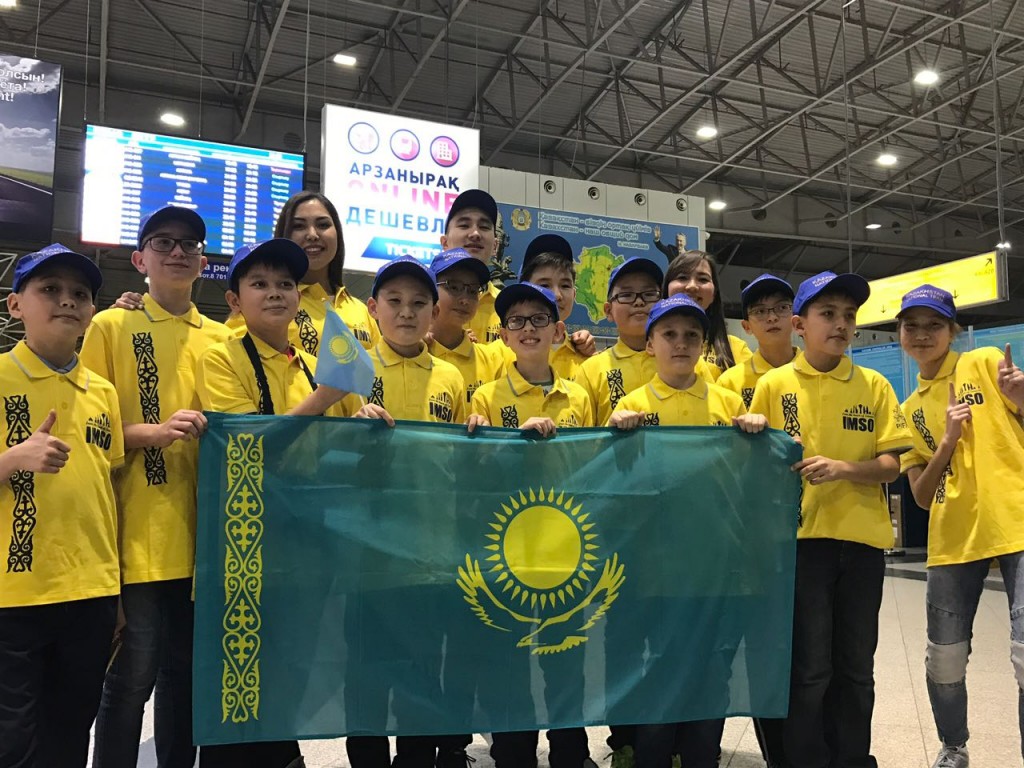ASTANA – Kazakhstan’s school students have demonstrated high mathematics and science scores in the international assessment of knowledge. According to the results of the Trends in International Mathematics and Science Study (TIMSS) released at the end of November, Kazakhstan’s 13 and 14-year-old students showed excellent knowledge in science achievements taking eighth place and students aged 9-10 years ranked in 12th place in mathematics.
According to Kazakh Minister of Education and Science Yerlan Sagadiyev, the progress of the fourth-grade students is very impressive.
“Our students made a great gift for us ahead of the 25th anniversary of the Independence of Kazakhstan. Kazakhstan is listed among leaders for mathematics and science education. Kazakh students’ results became significantly higher than the TIMSS international average,” said Sagadiyev in a special video message distributed after the results were released.
Kazakh students have managed to leave behind peers from Portugal, the United States, Denmark, Lithuania, Finland, Poland, Australia and others in mathematics and science studies.
“Students took the eighth and 12th positions according to the global study of knowledge. The results of our pupils are comparable to Russian students. They are ahead of their peers from the U.S., the United Kingdom, Germany, Turkey and many other countries. The rankings covered pupils studying in the public, rural and small schools. We are convinced that our students are talented, and we all need to believe in our children,” Sagadiyev added.
Singapore, Hong Kong, South Korea, Chinese Taipei and Japan dominate the international rankings.
The TIMSS result, released Nov. 29, assessed 57 countries on their achievements from 2011 to 2015.
The TIMSS has been assessing 9-10 and 13-14-year-old pupils’ attainment in mathematics and science at the fourth and eighth grades since 1995. Released by the International Association for the Evaluation of Educational Achievement (IEA), the large scale international assessment measures trends in the world every four years. Monitoring provides an opportunity to track changes in educational achievements of students while moving from primary (fourth grade) to the secondary (eighth grade) school.
For the first time, Kazakhstan took part in the TIMSS study in 2007. As a result, Kazakh fourth-graders took fifth place out of 36 countries in mathematical literacy and the 11th place in sciences.
In addition, the Organisation for Economic Cooperation and Development’s (OECD) international scholastic study, the Programme for International Student Assessment (PISA), released Dec. 6, found that Kazakh students have achieved progress in all areas of study compared to PISA-2012 results.
Over half a million 15-year-olds from across the globe participated in the PISA tests.
The study is aimed at identifying students’ capacities to apply knowledge and skills in different situations for an adequate socialisation.
Nowadays, modern parents are trying to pay more attention to children and unveil their skills in various directions realising that rapidly developing world generates more challenges for younger people.
According to Assan Zholdassov, head of Pythagoras School, engaged in training competitive students in science, technology, mathematics and engineering, students tend to choose careers in technical areas.
“At present, great number of children show interest in mathematics and exact sciences.
Students like to compete; they are fond of solving mathematical tasks. Parents also make a great contribution to children’s study,” said Zholdassov in an interview to the Astana Times.
Based on the Kazakh-British Technical University (KBTU), the Pythagoras School opened in 2008 in Almaty. Recently, the school has provided pupils with a chance to be enrolled in its branches in Astana.
The school of additional education is included in the National Organising Committee of the world’s largest mathematics competitions such as the International Mathematics and Science Olympiad (IMSO) and the International Mathematics Competition (IMC). Just recently, the Pythagoras students brought 12 medals out of 12 possible from the IMC.
The Pythagoras school graduates won more than 700 medals at the national and international competitions.
“The state is paying particular attention to the education sector encouraging pupils to achieve higher results in different spheres,” he added.

